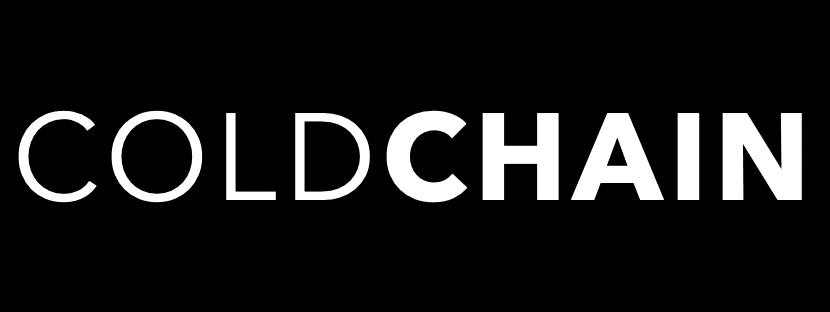What is Web3 SEO? In the era of Web3, where decentralization and blockchain technology are reshaping the digital landscape, staying on top of the latest SEO strategies is crucial for driving organic traffic to your website. But what exactly is Web3 SEO, and how can you harness its power to boost your online visibility?
Web3 SEO goes beyond traditional search engine optimization techniques. It involves understanding and leveraging blockchain-based protocols, decentralized applications, and the principles of Web3 to optimize your website for maximum visibility in the new digital environment. By embracing the principles of decentralization, transparency, and user empowerment, Web3 SEO can help you attract a highly engaged audience that is actively seeking the products or services you offer.
In this article, we will delve into the world of Web3 SEO and explore the latest strategies that can help you drive organic traffic to your website. From optimizing your content for decentralized search engines to leveraging blockchain-based influencer marketing, we will provide you with actionable tips and insights to stay ahead in the Web3 era. Get ready to unlock the power of Web3 SEO and take your online presence to new heights.
Understanding organic traffic and its importance

Organic traffic refers to the visitors who find your website through search engines such as Google, Bing or Yahoo!. It is the most valuable source of traffic because it is free, targeted, and sustainable. Unlike paid traffic, which requires continuous investment, organic traffic can generate leads and sales for your business without any ongoing costs. Moreover, organic traffic is highly relevant because it is based on the user’s search intent, which means that the visitors who come to your website through search engines are already interested in the products or services you offer.
Traditional SEO vs. Web3 SEO
Traditional SEO involves optimizing your website for search engines based on their algorithms and ranking factors. It includes on-page optimization, such as keyword research, content creation, and meta tags optimization, as well as off-page optimization, such as link building and social media marketing. On the other hand, Web3 SEO goes beyond traditional SEO by incorporating blockchain-based protocols, decentralized applications, and the principles of Web3 into the optimization process.
The rise of blockchain technology and its impact on SEO
Blockchain technology is a decentralized and immutable ledger that enables secure and transparent transactions without the need for intermediaries. It has revolutionized various industries, including finance, supply chain, and healthcare, by providing a trustless and tamper-proof system. In the context of SEO, blockchain technology has the potential to disrupt the search engine industry by creating decentralized search engines that are more transparent, user-centric, and resistant to manipulation.
Web3 SEO strategies for driving organic traffic
To harness the power of Web3 SEO, you need to adopt new strategies that leverage blockchain-based protocols and decentralized applications. Here are some of the latest strategies that can help you drive organic traffic to your website:
Leveraging decentralized search engines for better visibility
Decentralized search engines are blockchain-based protocols that allow users to search for information without relying on centralized search engines such as Google or Bing. They provide a more transparent and user-centric search experience by giving users control over their data and allowing them to earn rewards for contributing to the network. By optimizing your content for decentralized search engines, you can tap into a new user base and increase your online visibility.
The role of NFTs in Web3 SEO
Non-fungible tokens (NFTs) are unique digital assets that are stored on a blockchain and verified by smart contracts. They have gained popularity in the art and gaming industries as a way to create and trade digital collectibles. In the context of SEO, NFTs can be used to create unique and valuable content that attracts visitors to your website. You can create NFTs that represent your brand or products and offer them as rewards or incentives to your audience.
Optimizing content for Web3 SEO
To optimize your content for Web3 SEO, you need to focus on creating valuable, engaging, and user-centric content. This means understanding your audience’s needs and preferences and tailoring your content to meet their expectations. You should also use relevant keywords and metadata to make your content more discoverable by search engines. Moreover, you should ensure that your content is shareable on social media and other decentralized platforms to increase its reach and engagement.
Leveraging decentralized search engines for better visibility
Implementing Web3 SEO strategies requires a deep understanding of blockchain technology and decentralized applications. Fortunately, there are many tools and resources available that can help you navigate the Web3 landscape. Here are some of the tools and resources that you can use to implement Web3 SEO strategies:
- Decentralized search engines: Dsearch, Presearch, Akasha, etc.
- NFT platforms: OpenSea, Rarible, SuperRare, etc.
- Blockchain-based content platforms: Steemit, Hive, LBRY, etc.
- Web3 SEO blogs and communities: Web3 SEO Guide, Web3 SEO Forum, etc.
The role of NFTs in Web3 SEO
In conclusion, Web3 SEO is the future of search engine optimization. By embracing the principles of decentralization, transparency, and user empowerment, you can drive organic traffic to your website and attract a highly engaged audience. To succeed in the Web3 era, you need to adopt new strategies that leverage blockchain-based protocols and decentralized applications. By using the tools and resources available, you can stay ahead of the curve and unlock the full potential of Web3 SEO.
Optimizing content for Web3 SEO
In the era of Web3, where decentralization and blockchain technology are reshaping the digital landscape, staying on top of the latest SEO strategies is crucial for driving organic traffic to your website. But what exactly is Web3 SEO, and how can you harness its power to boost your online visibility?
Web3 SEO goes beyond traditional search engine optimization techniques. It involves understanding and leveraging blockchain-based protocols, decentralized applications, and the principles of Web3 to optimize your website for maximum visibility in the new digital environment. By embracing the principles of decentralization, transparency, and user empowerment, Web3 SEO can help you attract a highly engaged audience that is actively seeking the products or services you offer.
In this article, we will delve into the world of Web3 SEO and explore the latest strategies that can help you drive organic traffic to your website. From optimizing your content for decentralized search engines to leveraging blockchain-based influencer marketing, we will provide you with actionable tips and insights to stay ahead in the Web3 era. Get ready to unlock the power of Web3 SEO and take your online presence to new heights.
Tools and resources for implementing Web3 SEO strategies
NFTs, or non-fungible tokens, have gained tremendous popularity in the Web3 ecosystem. These unique digital assets, built on blockchain technology, have opened up new opportunities for content creators and businesses alike. Leveraging NFTs can play a significant role in your Web3 SEO strategy.
Firstly, NFTs can be used to tokenize and authenticate your digital content. By minting NFTs of your high-quality articles, videos, or images, you can prove ownership and establish credibility in the decentralized digital landscape. This can attract more organic traffic as users search for unique and authentic content.
Secondly, NFT marketplaces provide an avenue for content creators to monetize their work directly. By listing your NFTs on platforms like OpenSea or Rarible, you can not only generate revenue but also drive traffic to your website. Engaging with the NFT community and collaborating with influential artists or collectors can expand your reach and attract a new audience to your website.
Lastly, NFTs can fuel a decentralized social media strategy. By creating NFT-backed social media profiles or communities, you can incentivize user engagement and reward your most active followers. This can drive organic traffic as users are motivated to participate and share your content within the Web3 ecosystem.
Conclusion: Embracing the future of SEO with Web3
To succeed in Web3 SEO, you need to optimize your content for decentralized search engines and blockchain-based platforms. Here are some strategies to consider:
1. Decentralized Keyword Research: Traditional keyword research tools may not capture the nuances of Web3-related search queries. Look for blockchain-specific keyword research tools or explore decentralized search engines like Presearch or BitClout to identify relevant keywords and phrases.
2. Metadata and Smart Contracts: Metadata plays a crucial role in Web3 SEO. Optimize your metadata, including titles, descriptions, and tags, to incorporate Web3-related keywords. Additionally, consider leveraging smart contracts to embed metadata directly into your content, ensuring its visibility across blockchain platforms.
3. Engaging User-Generated Content: Encouraging user-generated content can boost your organic traffic and improve your Web3 SEO. Host contests, giveaways, or challenges that incentivize users to create and share content related to your brand or industry. This not only generates buzz but also attracts a highly engaged audience.
4. Optimizing for Decentralized Social Media: Web3 has given rise to decentralized social media platforms like Steemit and Minds. Establish a presence on these platforms and optimize your content by incorporating relevant keywords, engaging with the community, and leveraging blockchain-based features such as tipping or upvoting.
5. Leveraging Blockchain Influencer Marketing: Influencer marketing has evolved in the Web3 era. Identify influential figures in the blockchain space and collaborate with them to promote your brand or content. This can drive organic traffic from their dedicated followers who are actively seeking Web3-related information.



